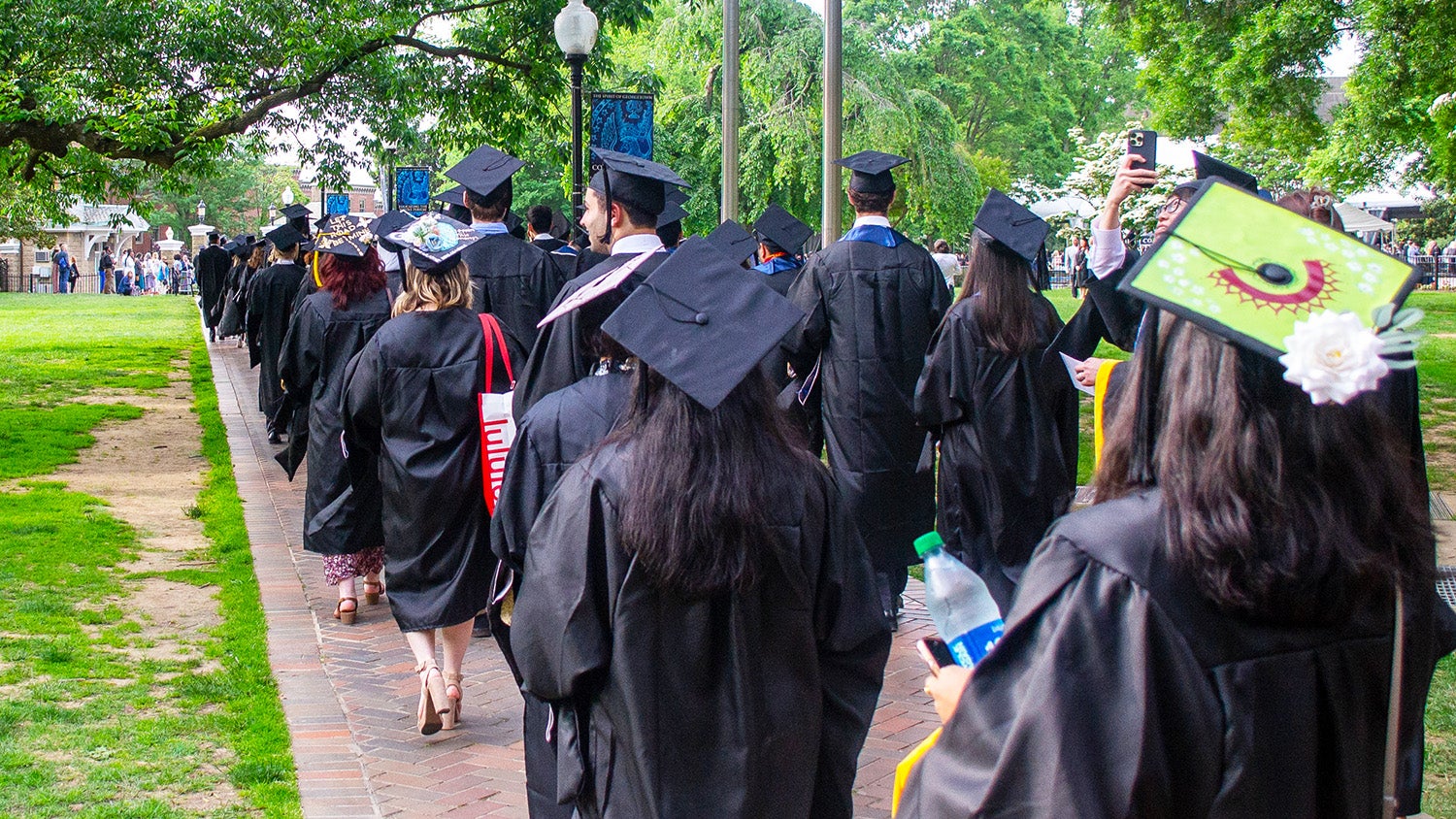Learning Together: Community Builders in BGE’s Class of 2025
By Natalie Rabner and Vaughn Samuel
The spirit of community is an integral part of a Georgetown education. Core university values like Community in Diversity, Care for Our Common Home, and People for Others call us to support one another as we live and learn together.
As Biomedical Graduate Education (BGE) celebrates the accomplishments of our graduating students at Commencement on May 16, 2025, we also celebrate the communities that support and inspire them in their academic and professional journeys. And we hope that the community our students have found at Georgetown will remain a source of strength, joy, and motivation as they build a future for themselves, their communities, and the world.
Anna Riegel, professor and GUMC vice president for biomedical education and research, said: “We want to congratulate all our graduating students, and we hope you will take full advantage of the community of fellow biomedical graduate scholars, researchers and teachers that you’ve met at Georgetown. The camaraderie you’ve had and the support you’ve given each other will be a real resource for you as you go on to new opportunities, whether locally or around the world.”
BGE spoke with students across our programs who have demonstrated exceptional commitment to community. Whether in a yearlong master’s program or a several-year Ph.D., each of these students enriched their educational journey by making connections, sharing their knowledge, and encouraging peers in their own efforts. Reading their stories, you’ll see the influence of their communities from before Georgetown; the interactions and experiences that shaped their studies here; and the ways they hope to serve others through their future work.
By sharing the perspectives of these featured graduates, we want to recognize and celebrate the hard work and achievements of every student in our BGE community!
Congratulations, Class of 2025!
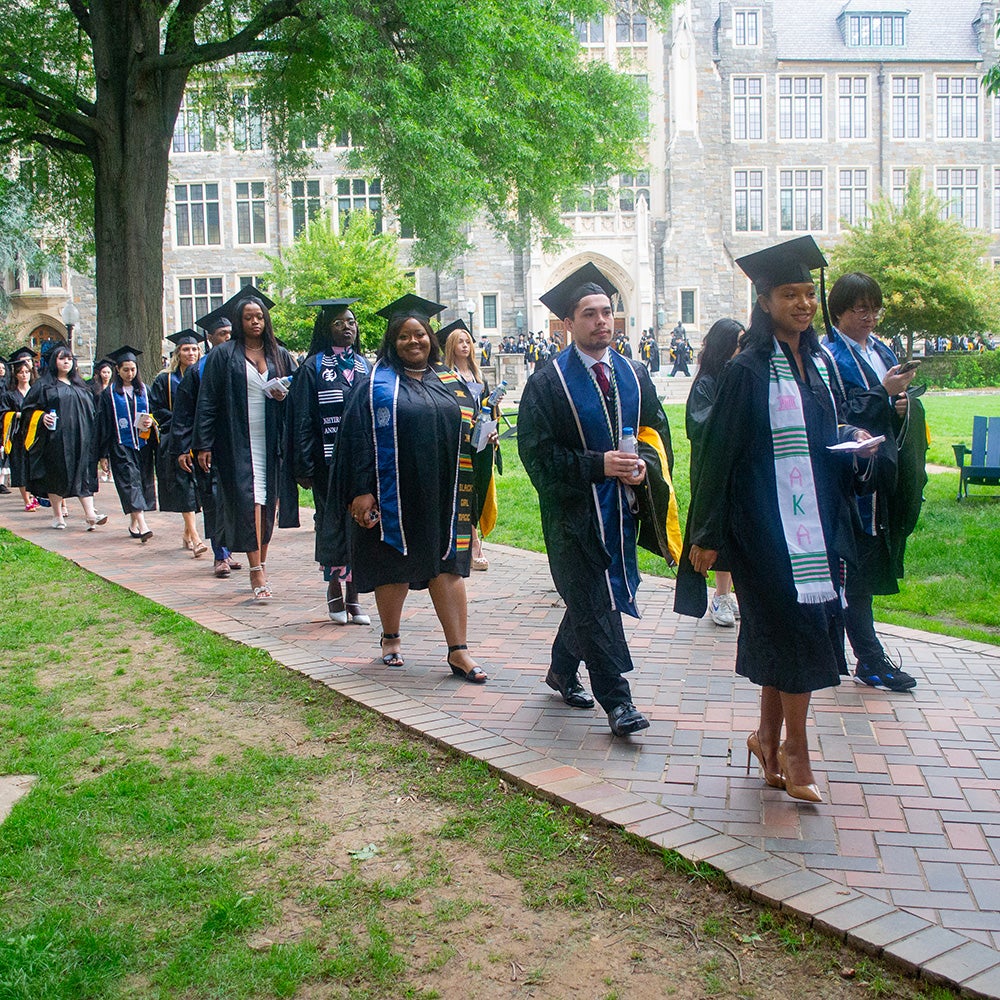
We are so proud of all our graduates! We invite you to browse our photos from Commencement and rewatch the main ceremony or doctoral hooding livestream.
Osmany Diez
M.S. in Physiology & Biophysics
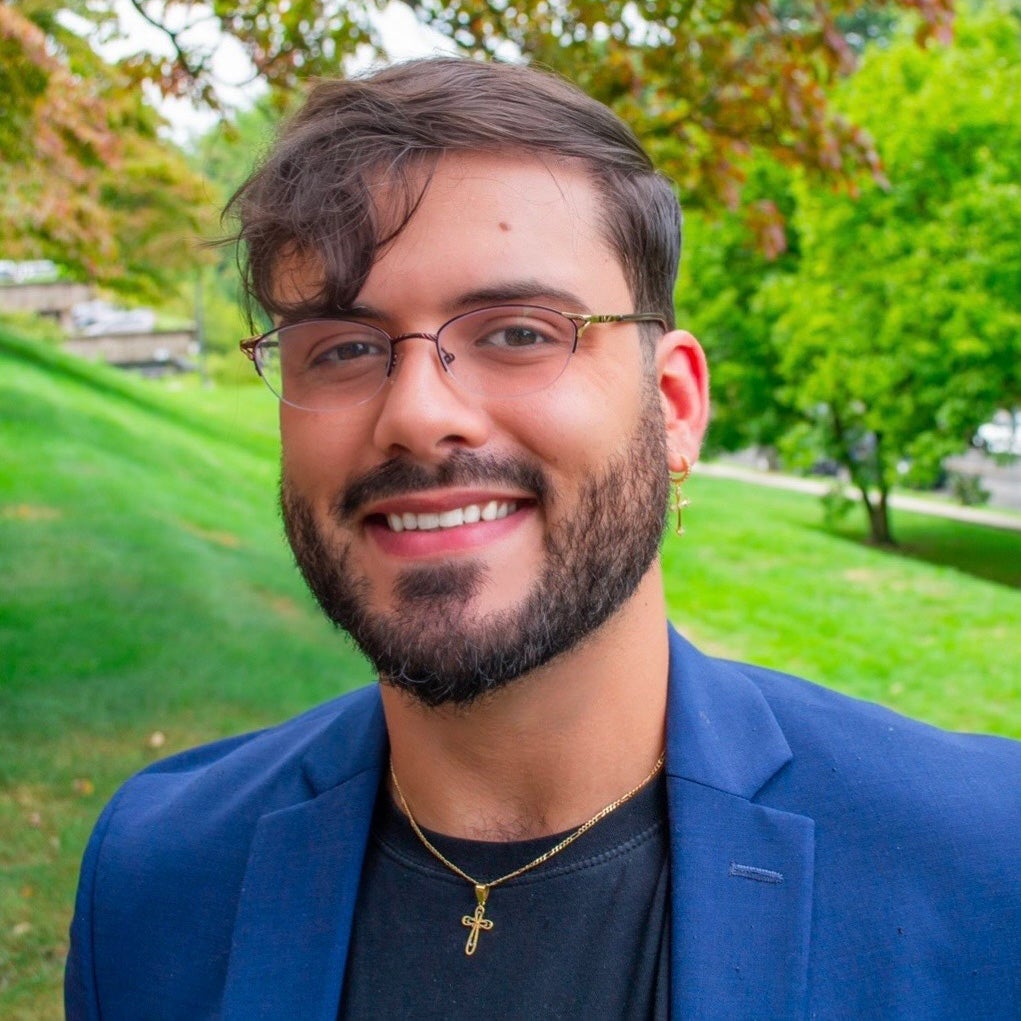
Originally from Cuba and raised in Miami, Osmany Diez’s path to Georgetown University was shaped by his diverse academic experiences. After earning a bachelor’s degree in biology from Nova Southeastern University in Fort Lauderdale, he pursued a postbaccalaureate program – a joint initiative between George Mason University and Georgetown University. This biomedical sciences program allowed him to transfer credits into Georgetown’s Physiology & Biophysics program.
Georgetown’s commitment to community service, its renowned medical school, and its Jesuit values made it the ideal place for Osmany. “Georgetown has always been a school that prioritizes giving back to the D.C. community and the broader world,” he says. His aspirations to enter medicine were a key factor in his decision to choose Georgetown, known for its outstanding medical school and its emphasis on training health care leaders. Osmany felt that Georgetown’s environment would align perfectly with his professional goals, as would its Jesuit principles of service to others and promoting social justice.
Osmany’s experiences growing up in Miami have profoundly shaped his approach to advocacy, equity, and community. “I feel privileged to have lived a good life, and now it’s my turn to give back to the world that has given me so much,” he says. His involvement with the LGBTQ community at Nova Southeastern and now at Georgetown has fueled his efforts to foster inclusive spaces for LGBTQ students. As President of GradPride, he has organized events such as speed friending, offering students a chance to connect in a busy academic environment.
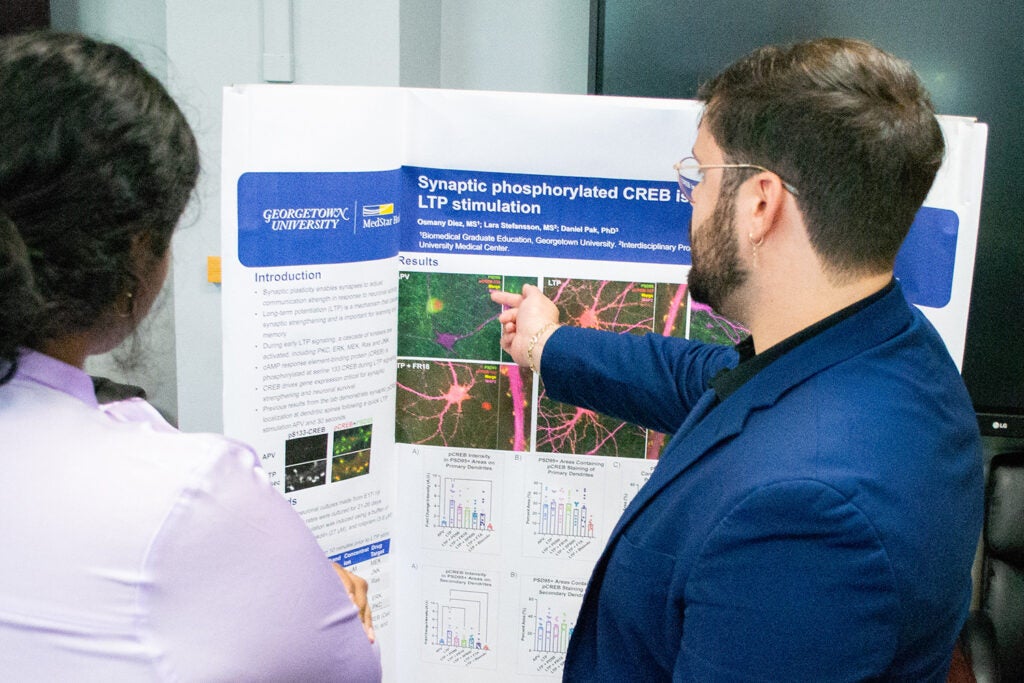
Osmany Diez presents his research during a Pharmacology and Physiology poster session.
Osmany has also served on several committees, including the search committee for a new director at the LGBTQ Resource Center and as parliamentarian in GradGov, where he worked to ensure that all voices – particularly those of international students – were heard. He also helped organize events focused on advocacy and social change, such as an Advocacy Day panel, and worked as a member of the Reconciliation Fund to support reparations for descendants of people enslaved on the Maryland Jesuit plantations.
Looking ahead, Osmany plans to dedicate his summer to MCAT preparation before exploring D.C. His ultimate career goal is to pursue neurology, a field he is deeply passionate about. Reflecting on his time at Georgetown, he says, “Georgetown has taught me how to care for people and include everyone, ensuring that the space we share is open to all.”
Colleen Gemborys
M.S. in Pharmacology
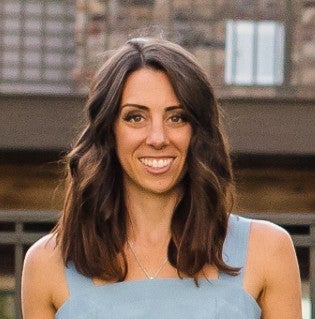
BGE students represent a broad spectrum of professional experience, from ambitious scholars fresh from their undergraduate studies to seasoned workers returning to academia. Colleen Gemborys is part of the latter group: She brought an impressive resume with her to the M.S. in Pharmacology program, including over a dozen years of technical, management and consulting roles ranging from a medical device company to General Motors. As she pursues a career “reset” to a new trajectory, she’s found that the lessons she learned in the business community have made her a strong and focused student, eager to share her experience with early-career classmates.
“With every new role I took, I saw myself getting further and further from science, from health care, from all the things that I had originally set out to do” after earning her first master’s degree, in biomedical engineering, Colleen says. “I wanted to see if there were opportunities I could find to help me step back into a patient-oriented field. I explored different degree programs, and ultimately decided on the Master’s of Pharmacology at Georgetown in order to restart my career and get back to my passions and interests.”
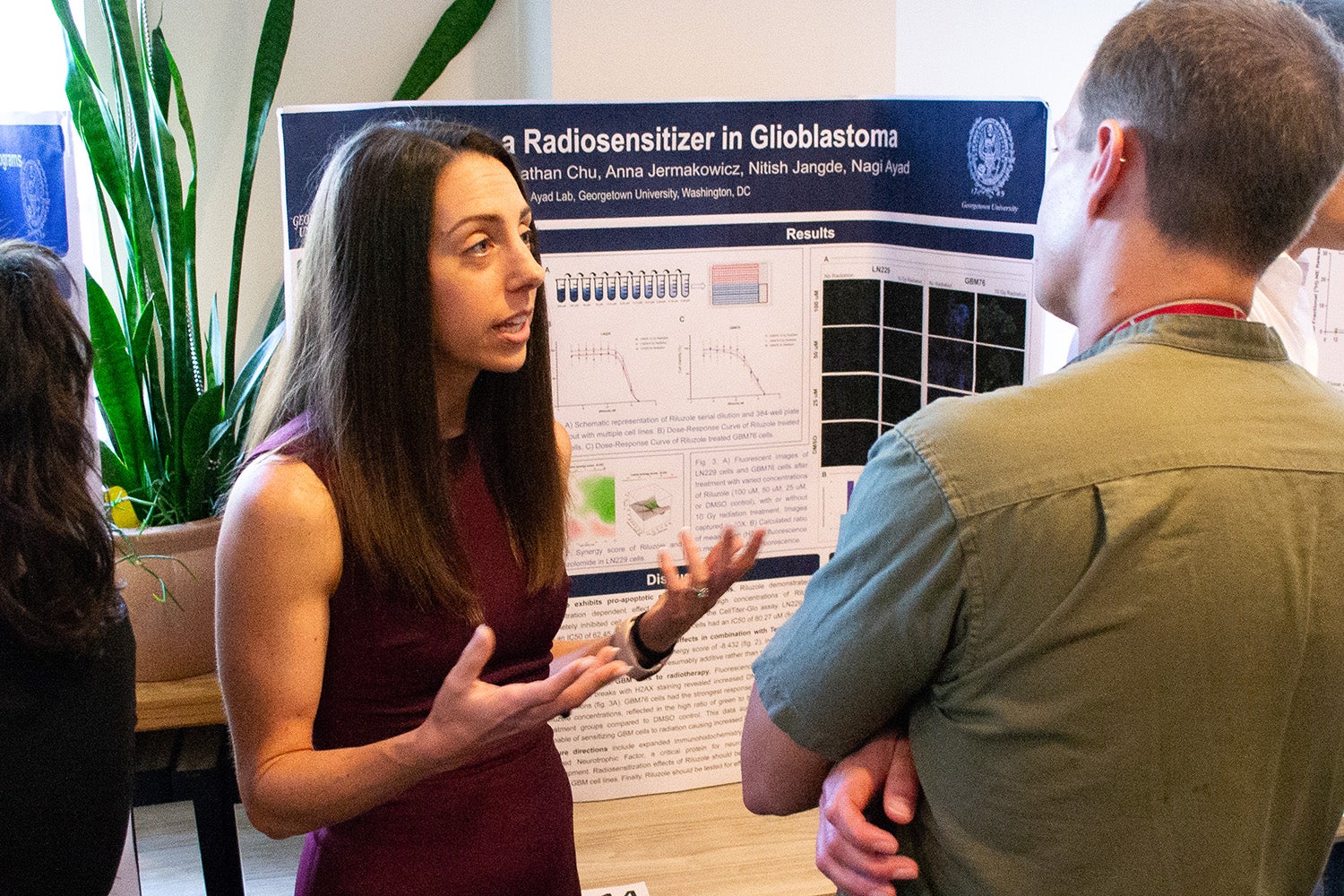
Colleen Gemborys explains her research at the Pharmacology and Physiology poster session.
Coming back to the classroom was “a more drastic change than I expected,” Colleen says, as she had to refresh her knowledge of scientific fundamentals to keep up with peers who’d been in college more recently.
“Comparing this degree to my previous degrees, I took it very seriously and was able to focus my attention more,” she says, “which is probably a factor of my age and my career experience. I understand that my academic performance is a reflection of my work ethic, talent, and dedication – I wanted to excel, I wanted to perform at my best.”
Her professional skills helped her along the way. She made connections with pharmacology faculty, and also negotiated a laboratory placement outside the department with Professor Nagi Ayad, a brain cancer researcher.
The faculty and staff went above and beyond to make me feel like I was a part of the community at Georgetown. … Professors had an open door policy, making themselves available for questions, concerns, or guidance. They put in the effort to get to know each and every student, holding steadfast to Georgetown’s commitment to cura personalis [care of the whole person].
Colleen Gemborys
She readily asked questions in classes to clarify information, as she had in conversations with many past clients. And she made herself a resource for students with less professional experience, talking with them about work life and personal finances.
Outside of lessons and labs, Colleen enjoyed the local community in Washington, D.C., a city she’d long wanted to explore. She found respite from her schoolwork visiting museums, running the trails, becoming an active member of a local meditation group, and attending global dance classes at the Kennedy Center: “I am able to clear my mind while I dance. I’m not worried about memorizing what’s in my textbook or planning my day – I’m simply present, and I’m expressing myself through movement with others. … It’s so refreshing.”
After graduating, Colleen plans to see more of D.C. while she’s still paying rent in the area, and to spend more time with her husband and dog back home in Michigan. She hasn’t decided what she wants her next professional step to be, but she will be aiming for the field of health care, possibly a role in research or patient care.
“I’m OK not having that answer,” she says. “I am giving myself time and freedom to explore many possibilities to ensure my next professional step is the best fit for my aspirations. I do believe that this pharmacology degree is going to set me up for success in whatever it is I decide to do next.”
Marvellous John
M.S. in Integrative Medicine & Health Sciences
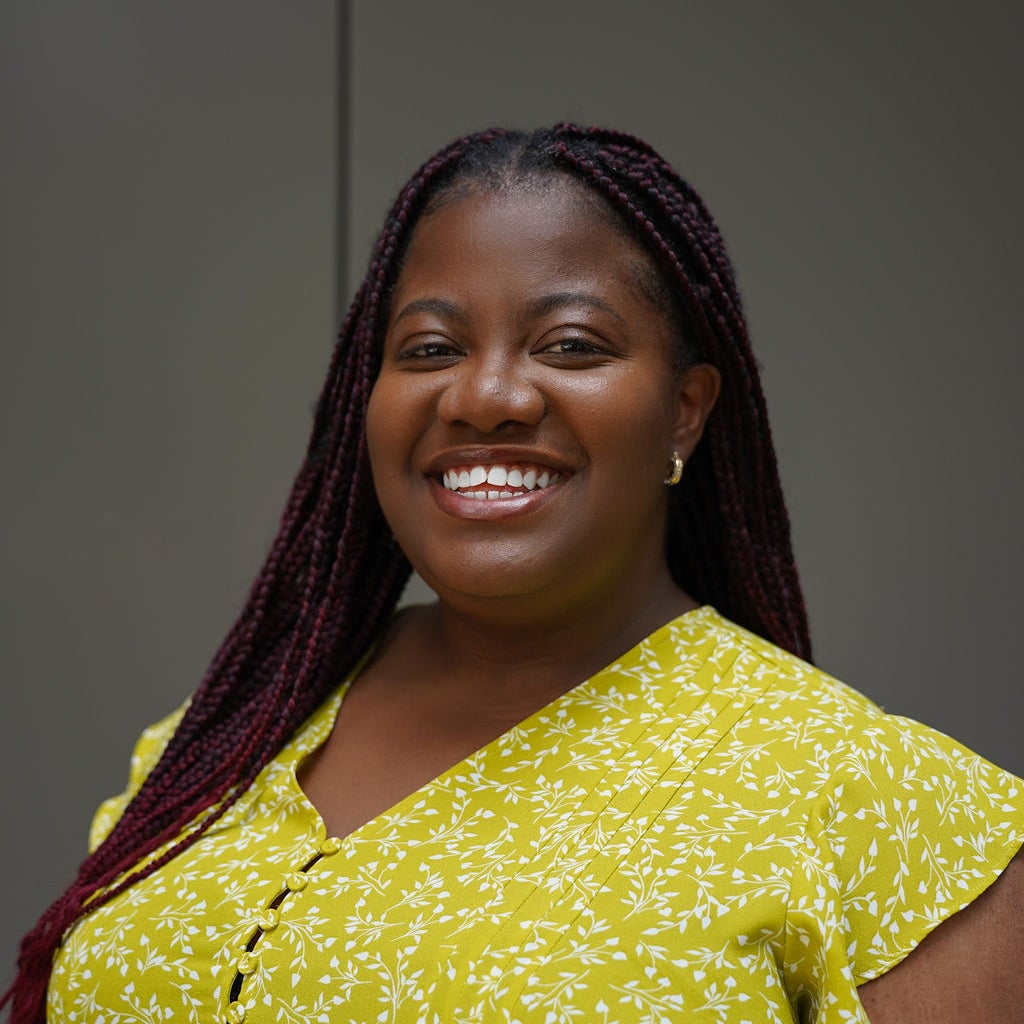
Marvellous John moved to the United States from Nigeria in 2017 to pursue her undergraduate studies at St. Olaf College in Minnesota, where she earned a Bachelor of Arts in Psychology. Her entry into clinical research came through her involvement in qualitative improvement and innovation projects. These experiences sparked her desire to find better ways to support patient health and well-being.
After considering various paths in medicine, Marvellous was drawn to Georgetown’s Integrative Medicine & Health Sciences program, which offered a unique focus on nutrition and holistic care – an ideal fit for her desire to support patients in a culturally and socially sensitive way.
Coming to Georgetown with an open mindset, Marvellous was influenced by her time at United World Colleges, which emphasized uniting people across nations. She has always admired the value of diversity and how it helps individuals become more aware of their roles within communities. Georgetown’s emphasis on advocacy and community-building allowed her to strengthen her belief that change starts with understanding the diverse needs of others.
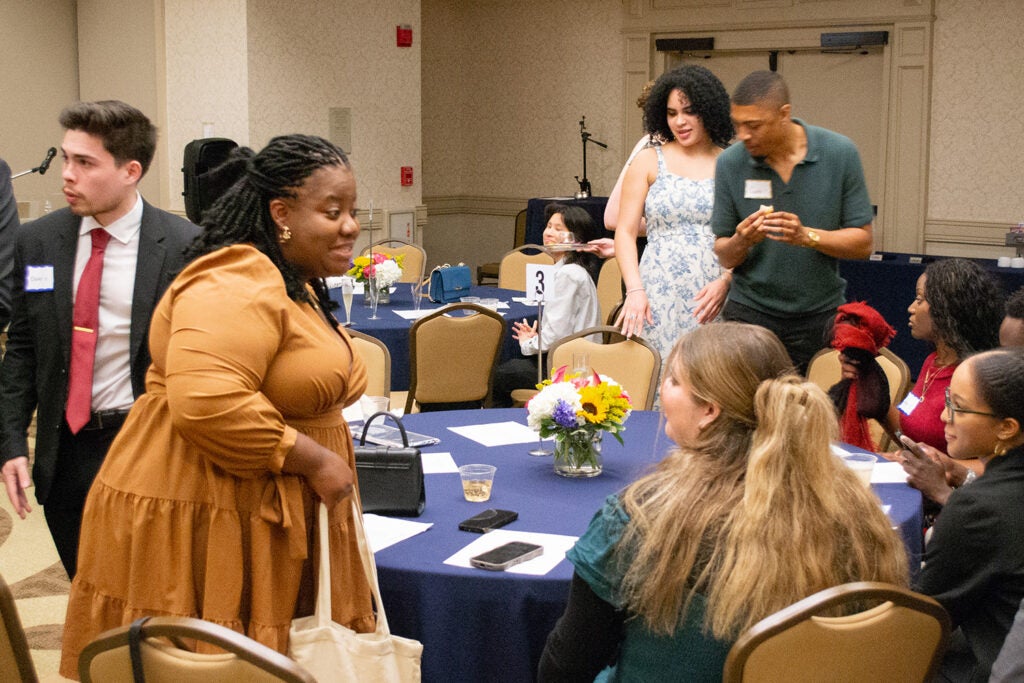
Marvellous John speaks with classmates at the Integrative Medicine & Health Sciences program gala.
At Georgetown, Marvellous has embraced leadership roles in the community, including serving as a student advocacy liaison for the Medical Center Graduate Student Organization (MCGSO) and as deputy director of the Food, Housing, and Cost of Living Committee with GradGov. Through these roles, she focused on increasing accessibility and addressing disparities, especially for students from low-income backgrounds. Marvellous advocated for expanded access to resources, including increasing funding for the Hoya Hub pantry to combat food insecurity. She also designed surveys to collect feedback from students, ensuring their voices were heard within the BGE community.
Georgetown’s sense of community has been a source of empowerment for Marvellous. The collaborative spirit of the university has inspired her to focus on health care advocacy and contribute to positive change across industries and communities. She has learned that even when a cause is outside of her immediate field, she can still offer support and be part of a collective effort.
Looking to the future, Marvellous plans to return to the clinical research field as a clinical research coordinator, with long-term aspirations of becoming a neonatologist. She is committed to improving the care and outcomes for premature infants.
Reflecting on her Georgetown experience, Marvellous says, “Georgetown has helped to instill in me the confidence that I do have the skills and abilities to help bring about positive change in our community.”
Sophia Levit
M.S. in Biotechnology
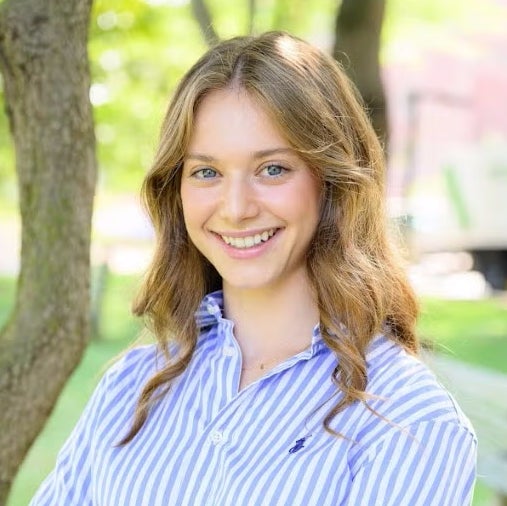
Sophia Levit’s time on the Hilltop has been part of a whirlwind educational journey. The Brooklyn native enrolled in a combined B.A./M.D. program out of high school, and finished her undergraduate studies at Albany in two and a half years, allowing her to take a yearlong master’s program before starting med school.
In addition to her academic ambitions, Sophia is fueled by a passion for building community and helping others across different backgrounds. In the gap between her bachelor’s and master’s studies, she traveled to Israel as a volunteer EMT with Magen David Adom (MDA), the country’s Emergency Medical Service organization. She arrived in the first week of 2024 and soon was riding in an ambulance with a multicultural team of first responders, providing care to Israel’s diverse population of Jews, Christians, Muslims, and Druze.
“That was the hardest experience of my life,” Sophia says. “It’s easier for me to come back here, see how amazing life is and how lucky we are to have such a community.”
As an M.S. in Biotechnology student at Georgetown, Sophia dedicated herself to her role as co-president of the program’s executive board, with a goal of bringing Biotechnology students closer together. She wanted to make sure that the cohort’s many international students felt included. The executive board planned holiday celebrations throughout the year for Halloween, Thanksgiving, Diwali, Chinese New Year, Easter, Passover, Nowruz (Persian New Year), and other special days. Students planned cultural activities and reached out to local restaurants to get traditional foods.
“In a community, each person matters,” Sophia says. “You want everybody to intermingle.”
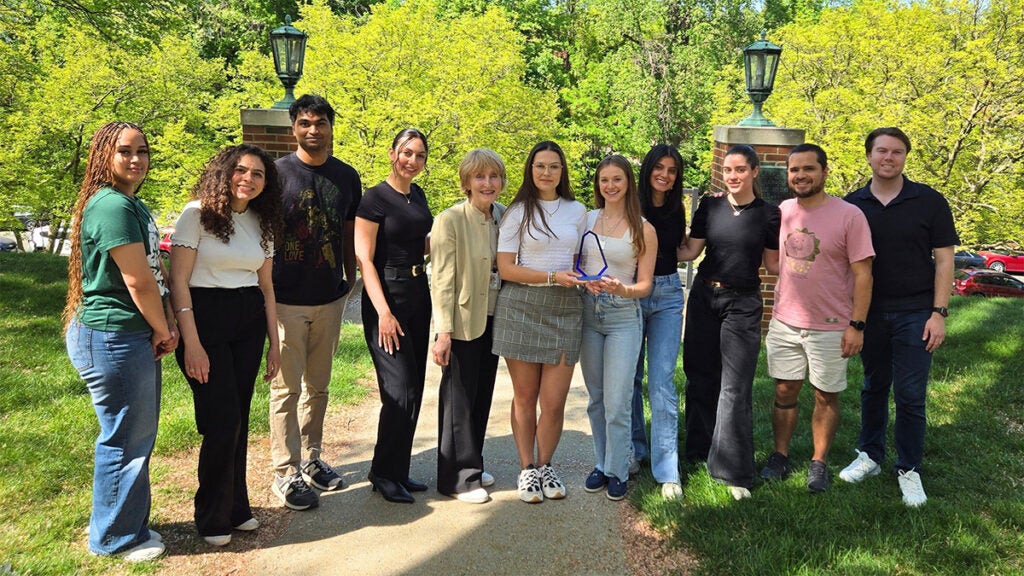
Sophia Levit (holding award right) poses with members of the Biotechnology Program Executive Board and Program Director Ivica Labuda.
The executive board also gave students birthday goodie bags and shout-outs, and circulated a newsletter to share announcements. At the end of the semester, the Graduate School of Arts & Sciences honored them with its Outstanding Graduate Student Organization Award. Sophia received the Leadership Award for her efforts.
In a letter supporting the board’s nomination, program director Ivica Labuda wrote: “Our student government has thrived under the exemplary leadership of Sophia Levit and Chidiebube Chikezie, who served as presidents in the first and second half of the semester, and the unwavering support of Martina Nuneva and Thao Nguyen as vice presidents. Their ability to lead with flexibility, initiative, and creativity has ensured that every student finds a place within this community, where their voices are heard and their experiences valued.”
Looking forward to medical school, Sophia says she hopes to use her biotech knowledge to translate lab discoveries into improved patient care. In the meantime, she’s already putting her vision into practice with a startup. Sophia and master’s classmates (and fellow bachelor’s/M.D. students) Michael Bratslavsky and Callum Newton will be in the Georgetown Entrepreneurship Summer Launch Incubator (SLI) program working on their creation, Aurora Probiotics, with a goal of addressing mental health challenges by restoring patients’ gut health.
Sophia says she has already benefited immensely from Georgetown’s alumni community in developing Aurora.
The university has an “incredible alumni network where people genuinely want to help,” she says. “They’re busy, but they make time to support students. It’s rare to find people so willing to give their time, but I think that speaks to the kind of community Georgetown builds.”
Patrick McDeed
Ph.D. in Biostatistics
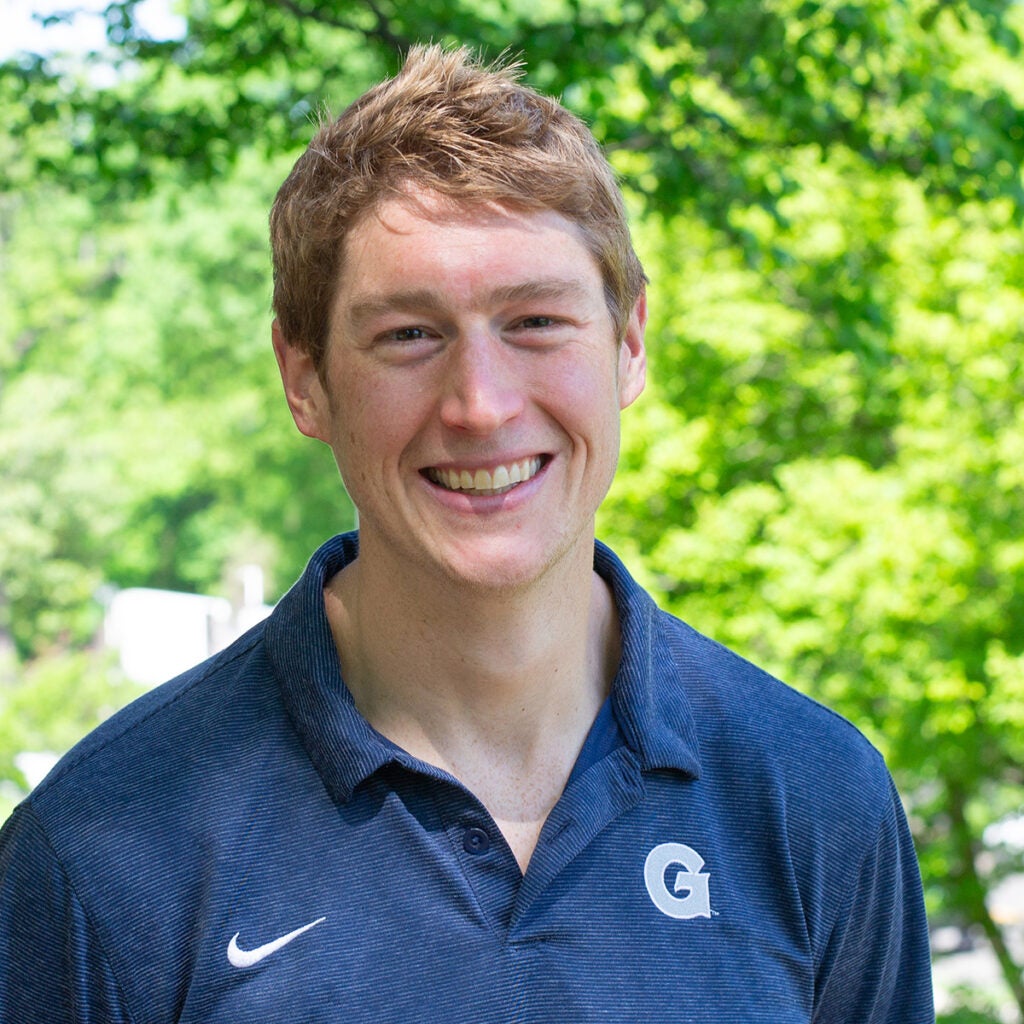
Patrick McDeed thrives at the nexus of science and education. While studying a field that’s more associated with monitors and keyboards than lab coats and microscopes, he took many opportunities to teach and learn from peers and faculty across the computational and clinical domains.
Patrick has always valued teaching as a way to reinforce one’s own knowledge while sharing it with others. The son of a math teacher, he studied mathematics and education as a B.S./M.S. student and worked over five years at a K-12 curriculum development center, crafting lessons to help students think critically with and about data. Through it all, Patrick was “thinking about data and how we as humans interact and communicate with data professionally and in our day-to-day lives.”
So, when he chose Georgetown to further his love of working with data and pursue his Ph.D. in Biostatistics, Patrick wanted to keep in touch with those teaching roots while he was learning. He found ways to do so through research as well as student leadership and peer mentorship.
Patrick’s dissertation research partnered him with tumor biologists in the Wellstein Lab, providing computational support for a project to develop novel methods to better monitor the safety and effectiveness of cancer treatments.
All the analyses that we’ve done in [Wellstein’s lab] have been really collaborative in that research design process … which I think is really helpful, because a biologist views experimental design a certain way and data collection a certain way … and then I as a biostatistician have a different way of viewing that design and data collection and methods.
Patrick McDeed
Outside of his research, Patrick gave his time to support fellow students through the One Step Ahead Mentoring (OSAM) program, which pairs BGE master’s students with Ph.D. or medical students. Patrick shared advice from his time in industry and academia, and in turn got to learn more about master students’ fields, such as bioinformatics and biotechnology.
He also volunteered for three years with the Medical Center Graduate Student Organization (MCGSO), helping to review students’ applications for MCGSO professional development and research grants. Patrick, who himself secured funding from a National Institutes of Health (NIH) TL1 early-career grant through the Georgetown-Howard Universities Center for Clinical and Translational Science (GHUCCTS), says that reading other students’ grant applications gave him a valuable new perspective on the process.
“It’s kind of like a mock NIH study section,” he explains. “You get really good experience of reviewing grants and kind of thinking like a reviewer – and hopefully offering your peers, who submitted the grants, good feedback.”
After Commencement, Patrick will be heading to Seattle to work in a computational biology lab at Fred Hutchinson Cancer Center. There, he will be developing new methods to analyze data from liquid biopsy samples – the same technology he focused on in the Wellstein Lab.
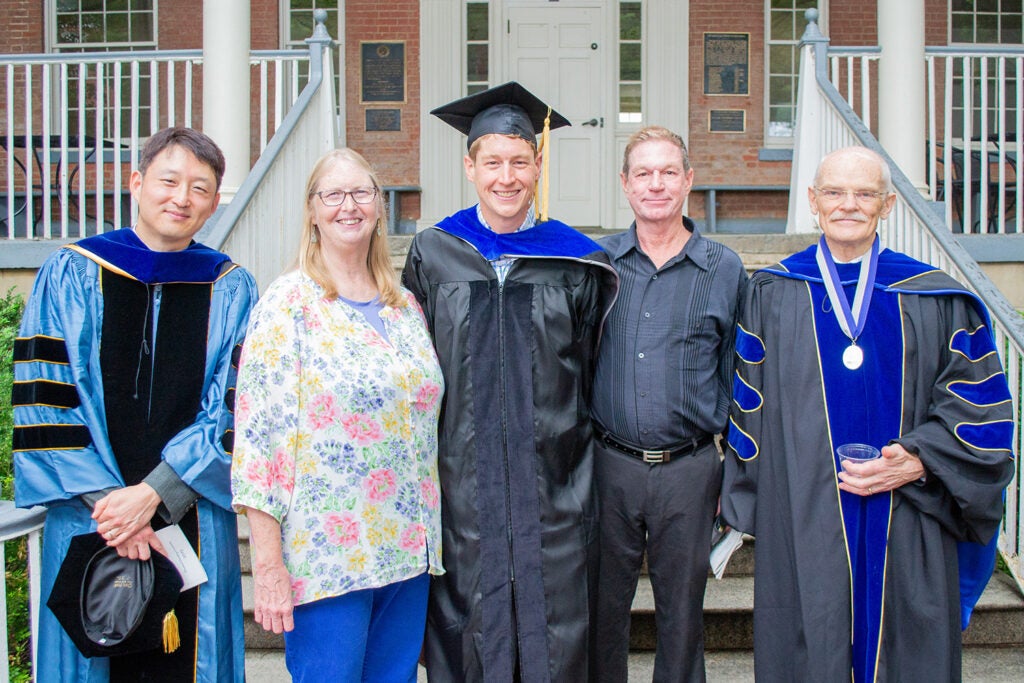
Patrick McDeed poses with his parents and his faculty mentors, Jaeil Ahn (left) and Anton Wellstein, at the Graduate School Doctoral Hooding Reception.
In the long term, he hopes to stay in academia and keep doing computational work that’s “directly tied to something with… very tangible, real public health outcomes” – as well as opportunities for collaboration and mentoring.
“I think one of the things I really enjoyed about my time at Georgetown, and through all the different experiences, is it being highly collaborative,” Patrick says. “I’ve been very intentional about trying to branch out, and working with others, and seeking these different opportunities, because I feel it’s very important to have people who can speak the different languages of the sciences. And I’m a big proponent of team science – so [I want to] try to have that be a part of my future career as well.”
Congratulations to all of our graduates!
We invite you to visit our Alumni page to find out how you can take advantage of BGE resources and stay connected with the BGE community after graduation.
Read More About BGE’s Class of 2025
More BGE News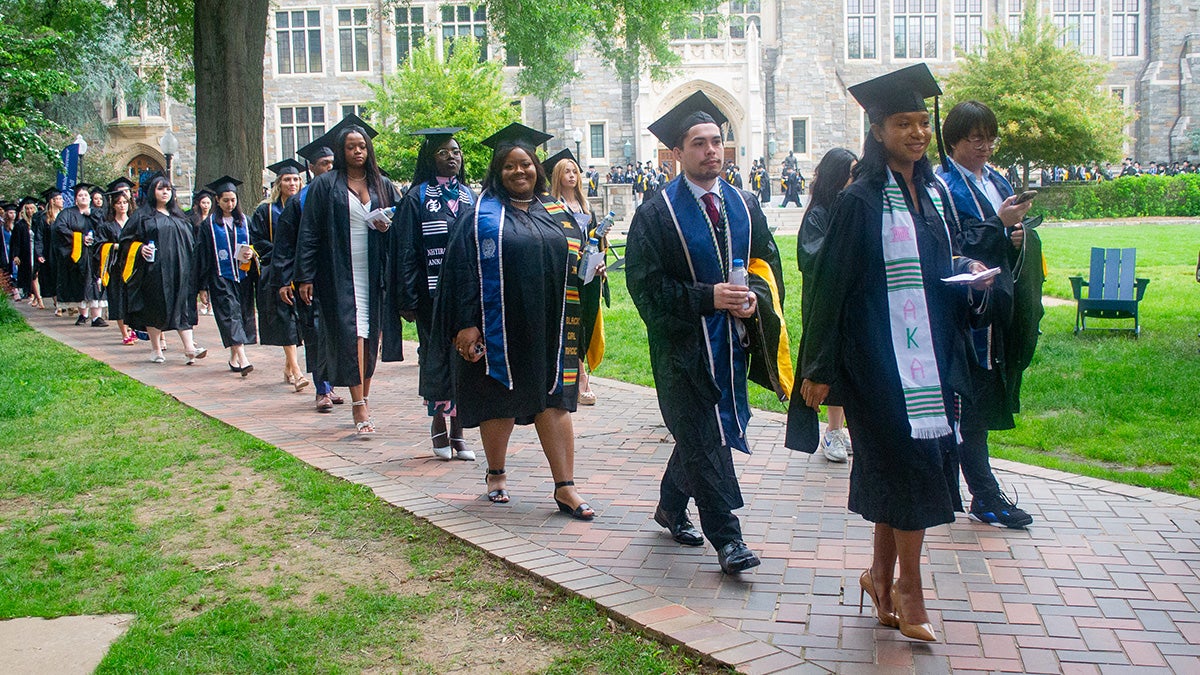
News
BGE in Photos: Commencement 2025
BGE’s graduating Class of 2025 marked Commencement season with end-of-semester poster sessions, program galas and parties, the Doctoral Hooding Ceremony on May 15, and the Graduate School Commencement ceremony on May 16. We’ve curated photos from several of these events in celebration of our graduates!
May 18, 2025
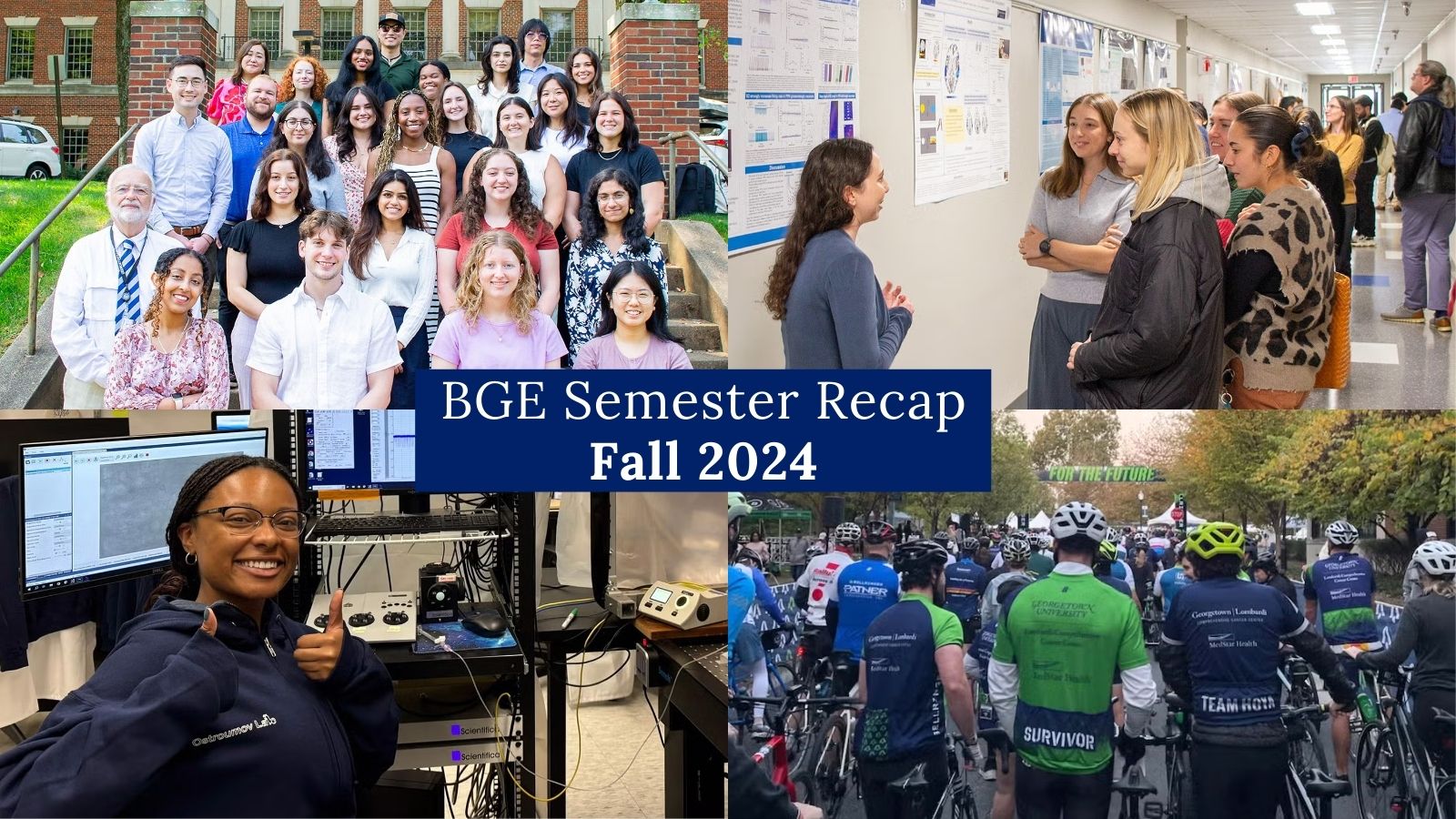
News
Have you kept up with the activities and accomplishments of BGE’s students and alumni this semester? Browse some of our top stories from Fall 2024.
December 20, 2024

